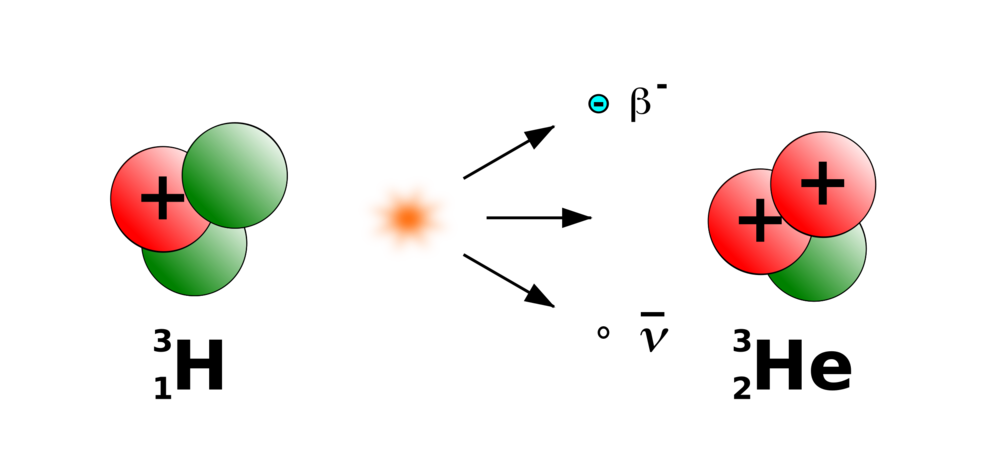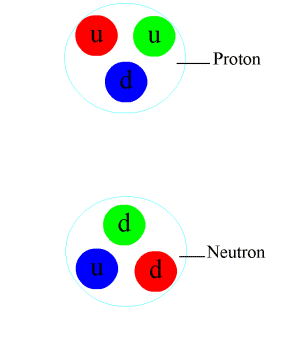Shouldn't tritium be more stable than a hydrogen atom with no neutrons? Why does tritium do alpha decay but not hydrogen atom with no neutrons? I suppose that when the number of neutrons increases the strong nuclear force also increases. So why is tritium unstable?
-
3$\begingroup$ Note that tritium's decay mode is beta. Alpha decay involves emitting what is, in effect, the nucleus of a helium-4 atom, which is therefore a bigger thing than a tritium atom. $\endgroup$– dmckee --- ex-moderator kittenCommented Jan 8, 2017 at 8:14
1 Answer
Shouldn't tritium be more stable than a hydrogen atom with no neutrons. Why does tritium do alpha decay but not hydrogen atom with no neutrons?
The tritium nucleus, or triton, is unstable simply because it is more massive than its decay products which are a helium-3 nucleus, an electron, and an electron anti-neutrino. Its decay products are more stable. This is called beta decay.
More on this decay: Tritium is the heaviest isotope of hydrogen with nuclear charge Z = 1.Tritium is radioactive and decays with a half-life of 12.3 years by β decay into helium isotope 3, with charge Z = 2. The mean kinetic energy release in the β-electron is ≈ 5.6 keV, the maximum at 18.59 keV. The β-electron is the electron from the decay of one of the neutrons in the nucleus.
I suppose that when the number of neutrons increases the strong nuclear force also increases.
As Wikipedia says, The nuclear force is a residual effect of the more fundamental strong force or strong interaction. The strong interaction is the attractive force that binds the elementary particles called quarks together to form the nucleons (protons and neutrons) themselves. This more powerful force is mediated by particles called gluons. Gluons hold quarks together with a force like that of electric charge, but of far greater strength. Quarks, gluons, and their dynamics are mostly confined within nucleons, but residual influences extend slightly beyond nucleon boundaries to give rise to the nuclear force.
For more : see this Wikipedia page . It's about the semi-empirical mass formula and how it is used to predict the stability of different nuclei.
-
$\begingroup$ @T7-TO220 You can ask for explanation anytime . Also you can accept the answer if it cleared all your doubts. $\endgroup$ Commented Jan 8, 2017 at 14:24
-
$\begingroup$ It actually does not explain "why". To say that one is lighter, is just paraphrasing it is more stable. $\endgroup$ Commented Jul 2, 2019 at 7:33
-
1$\begingroup$ Still the question is : considering strong interaction is the same for neutrons and protons, protons are repelled by electrostatics. So one would expect that pnn is more stable than ppn as it is bound by same nuclear forces, but with less electrostatic penalty. $\endgroup$ Commented Jul 2, 2019 at 7:35


